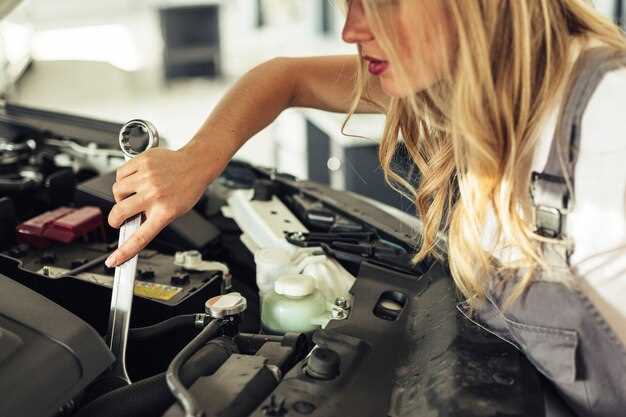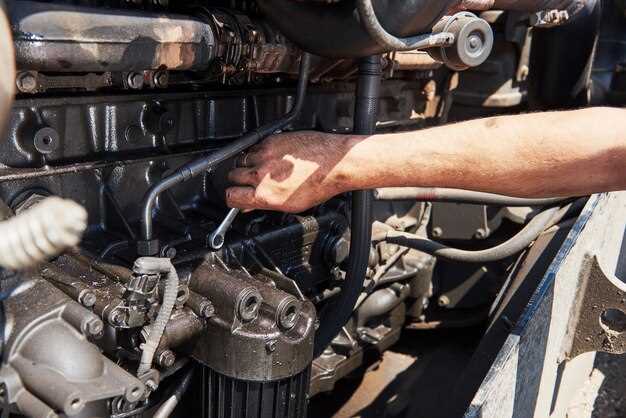
In the pursuit of enhanced performance, many automotive enthusiasts often find themselves seeking ways to maximize engine power. However, achieving this goal demands a careful balance between performance enhancements and safety. Understanding how to effectively increase engine output without compromising reliability is crucial for any vehicle owner.
Engine power can be improved through a variety of methods, including tuning, upgraded components, and better fuel quality. Each of these strategies offers its own set of advantages and challenges. For instance, while tuning the engine control unit (ECU) can yield significant power gains, it also requires careful calibration to avoid damaging the engine. Effective power maximization hinges not only on understanding these methods but also on implementing them in a way that ensures the longevity of your engine.
Furthermore, it is essential to recognize that safety should always be the top priority. Overlooking this critical aspect can lead to mechanical failures, costly repairs, and potentially dangerous driving conditions. Therefore, thorough research and expert advice are paramount when considering modifications aimed at increasing engine power. With the right approach, drivers can enjoy exhilarating performance without sacrificing the integrity and safety of their vehicle.
Understanding Engine Specifications and Modifications
Engine specifications provide crucial information about an engine’s design, performance capabilities, and operational limits. Key specifications include displacement, horsepower, torque, compression ratio, and fuel type. Displacement refers to the total volume of all the cylinders in the engine, measured in liters or cubic inches, and plays a significant role in determining power output. Horsepower indicates the engine’s ability to perform work, while torque measures the rotational force available for acceleration. Compression ratio affects the engine’s efficiency and power output, as higher ratios generally increase power but require higher-octane fuel.
Modifications aimed at maximizing engine power must be approached thoughtfully to ensure reliability and safety. Common modifications include upgrading air intake systems to improve airflow, installing performance exhaust systems to reduce back pressure, and reprogramming the engine control unit (ECU) for optimized fuel maps. Each modification can enhance performance, but they may also strain engine components if not carefully managed.
When considering modifications, it is essential to evaluate the engine’s supporting components, such as the fuel system, ignition system, and cooling system. Upgrading these components ensures that the engine can handle increased power levels without risking failure. Additionally, proper tuning after modifications is critical to maintain optimal performance and engine longevity.
Finally, understanding your specific engine’s limits is vital to avoid potential damage. Always consult manufacturer specifications and seek professional advice when undertaking significant modifications. Following this guidance allows you to maximize engine power while maintaining safety and reliability.
Optimal Fuel Choices and Tuning Techniques

Maximizing engine power requires careful consideration of fuel quality and tuning methods. Choosing the right fuel and effectively tuning your engine can lead to significant performance gains while maintaining reliability.
Here are key elements to consider:
1. Fuel Types
- Octane Rating: Higher octane fuels resist knocking and allow for more aggressive tuning. For performance engines, fuels with an octane rating of 91 or higher are recommended.
- Fuel Composition: Consider using premium fuels with additives that clean injectors and improve combustion efficiency.
- Ethnol Blends: Fuels containing ethanol can provide benefits, such as increased oxygen content and higher octane. However, compatibility with your engine’s components must be ensured.
2. Fuel Injectors and Delivery

Optimizing fuel delivery is crucial for maximizing power:
- Upgrading Fuel Injectors: Higher flow injectors can support increased horsepower by delivering more fuel at the same or higher pressure.
- Fuel Pressure Regulation: Ensure your fuel pressure regulator maintains consistent pressure under all conditions. This stability is key for predictive tuning.
3. Air-Fuel Ratio (AFR)
A proper air-fuel ratio is vital for performance:
- Stoichiometric Ratio: For gasoline engines, the ideal AFR is typically around 14.7:1. Some performance applications may require a richer mixture for higher power outputs.
- Wideband O2 Sensors: Installing a wideband O2 sensor allows for precise monitoring and adjustment of AFR during tuning and performance testing.
4. Tuning Techniques
Effective tuning is essential for maximizing engine output:
- ECU Remapping: Adjusting the engine control unit (ECU) settings can optimize ignition timing, fuel delivery, and boost levels in turbocharged engines.
- Dyno Tuning: Utilizing a dynamometer provides accurate feedback on engine performance, allowing finer adjustments for optimal power gains.
- Post-Tune Testing: After initial tuning adjustments, conduct tests under various conditions to ensure reliability and performance across a range of driving scenarios.
5. Regular Maintenance
Consistent maintenance supports the efficacy of chosen fuels and tuning:
- Scheduled Servicing: Regular oil changes and filter replacements help maintain peak engine performance.
- Monitoring Fuel Quality: Use fuel tested for contaminants to avoid damage to engine components and ensure efficient combustion.
In conclusion, making informed choices about fuel and tuning techniques can significantly enhance engine power while ensuring safety and reliability. Optimize your setup for both daily driving and high-performance applications for the best results.
Regular Maintenance Practices for Enhanced Performance
Regular maintenance of engine components is crucial for maximizing performance and ensuring longevity. A systematic approach to upkeep can prevent deterioration and maintain optimal functioning.
Firstly, periodic oil changes play a significant role in engine health. Fresh oil reduces friction, enhancing efficiency, while preventing sludge build-up. Adhering to manufacturer-recommended intervals ensures that lubrication remains effective.
Next, air filters must be inspected and replaced as needed. A clean air filter allows for optimal airflow, improving combustion efficiency. Clogged filters restrict airflow, leading to a decrease in performance and fuel economy.
Additionally, spark plugs should be tested and replaced periodically. Worn spark plugs can cause misfires, reducing engine power and fuel efficiency. Replacing them at recommended intervals ensures smooth ignition and optimal power delivery.
Regularly checking and maintaining the cooling system is essential. Overheating can lead to significant engine damage. Ensure coolant levels are adequate, and the system is free of leaks. Flushing the radiator at suggested intervals can prevent corrosion and buildup.
Tire pressure and condition should not be overlooked, as they affect traction and overall vehicle performance. Under-inflated tires can increase rolling resistance, decreasing fuel efficiency and engine strain. Regularly checking tire pressure and aligning wheels can enhance handling and performance.
Finally, keeping the fuel system clean is vital for optimal performance. Using high-quality fuel and utilizing fuel system cleaners can minimize deposits and improve combustion efficiency. Regular checks of fuel filters ensure a clean fuel supply, reducing strain on the engine.
By following these maintenance practices, vehicle owners can significantly enhance engine performance while ensuring reliable operation over time.
